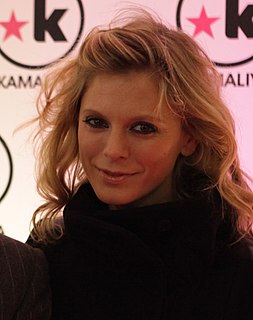A Quote by Clint Eastwood
I'm not one of these guys who sits around saying, 'Gee, I mean, the person had a strange childhood and that's why he's doing this horrible thing. Poor Jeffrey Dahmer. He's just had a bad childhood and that's why he's eating people.' Wait a second! This person should be removed from the planet.
Related Quotes
If I just got up in the morning and had no place to go and was retired or something, I would be sitting there and be thinking, "Gee, what is the purpose of life? Why are we all finite? Why do we get old and die? Is there nothing out there? Why is it so tragic? Why do our loved ones perish? Why do we generate?" Who wants to think about that stuff?
I just read about John Le Carre, the great spy novelist. He had an absolutely miserable childhood. His mother deserted him when he was young. His father was a playboy and a drunk. He was shifted around to many different homes. He knew he was a writer when he was about nine, but he was dyslexic. So here was a person with an absolutely messed-up childhood and a symptom that prevented him from doing what he wanted to do most. Yet that very symptom was part of the calling. It forced him to go deeper.
Strangely enough, for many many years I didn't talk about my childhood and then when I did I got a ton of mail - literally within a year I got a couple of thousand letters from people who'd had a worse childhood, a similar childhood, a less-bad childhood, and the question that was most often posed to me in those letters was: how did you get past the trauma of being raised by a violent alcoholic?
A certain person wondered why a big strong girl like me wouldn't keep a job which paid a normal salary. I took my time to lead her and to read her every page. Even minimal people can't survive on minimal wage. A certain person wondered why I wait all week for you. I didn't have the words to describe just what you do. I said you had the motion of the ocean in your walk, and when you solve my riddles you don't even have to talk.




































